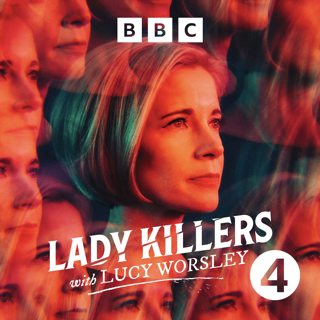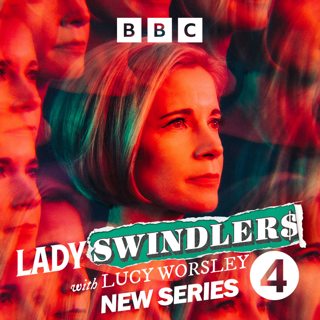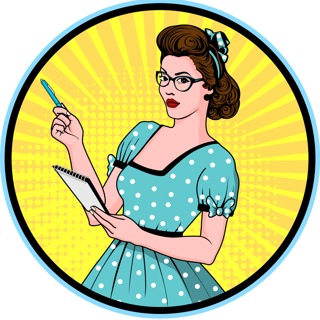
14. Mary McKinnon
In Lady Killers, Lucy Worsley investigates the crimes of 19th and early 20th century women from a contemporary, feminist perspective. In this episode, Lucy is joined by Dr Anastacia Ryan, Founder of SISU, a Glasgow-based charity for women at risk and Lecturer in Social Policy at the University of Glasgow, to explore the case of Mary McKinnon. Mary lives in Edinburgh, Scotland in the 1820s, and runs a tavern on South Bridge. Except her tavern, like many at the time, has another side to it – it’s also a brothel. On 8th February 1823, Mary McKinnon is out having a drink with her friend, when she is called back to the inn as a group of men are causing trouble. She arrives to find a chaotic scene, and in the midst of the frenzy, one of the men is stabbed. He accuses Mary of stabbing him, yet she protests her innocence. Despite this, she’s arrested and put on trial. She faces animosity and judgment every step of the way. The judge even directs the jury to pay more heed to the evidence of the men who visited her tavern that night, than to the evidence of her fellow workers and other women. But did she do it? And did she face increased prejudice not only because she was a woman, but because she looked after sex workers? Lucy Worsley is also joined by Professor Rosalind Crone from the Open University. Together, Anastacia and Rosalind visit the vaults under Edinburgh’s Old Town to see what Mary’s tavern would have been like in the 1820s. Lucy asks if the way society treats sex workers has changed since Mary’s time. Producer: Hannah Fisher Readers: Clare Corbett, Jonathan Keeble, Hannah Fisher, Katy Duff, Jacob Smyth and Fraser Coutts Sound Design: Chris Maclean Series Producer: Julia HayballA StoryHunter production for BBC Radio 4
10 Apr 202329min

13. Elizabeth Taylor
Lucy Worsley looks at the crimes of Victorian women from a contemporary, feminist perspective. In this episode, Lucy is joined by Deborah Frances-White, women’s rights campaigner, comedian and host of The Guilty Feminist podcast, to explore the case of Elizabeth Taylor, a backstreet abortionist in late 19th century Melbourne, Australia who spent decades playing cat and mouse with the law. They consider Elizabeth Taylor’s story in the context of women’s rights in 19th century Australia and the subsequent campaign for legal, safe abortion around the world. Lucy is also joined by historian Rosalind Crone, Professor of History at the Open University, who has searched immigration, court and prison records to give new insights into Elizabeth Taylor’s life. When the Taylor family emigrates from Manchester to Melbourne, Australia in 1872, Elizabeth begins to advertise in the classified columns of the newspapers as a ‘midwife and ladies’ nurse’. These are thinly veiled adverts for her extremely profitable, and completely illegal, abortion clinic. Many desperate women with unwanted pregnancies find their way to her door. But sadly, not all of them survive the abortions Elizabeth Taylor performs and, over three decades, she is in and out of court - twice on murder charges and facing the death penalty. Lucy wants to know why Elizabeth Taylor worked for so many years as an illegal abortionist knowing that she was risking her own life. Was she acting out of compassion for desperate women or cashing in on their terrible situations? What light does her story shine on the abortion debate today, with the overthrow of Roe vs Wade in the USA? How much do 19th century views, and laws, about the rights of women over their bodies resonate now? What does the case of Elizabeth Taylor tell us about women’s lives in the late 19th century and women’s lives today?Producer: Jane Greenwood Readers: Susan Dean, Clare Corbett and Jonathan Keeble Sound Design: Chris Maclean Series Producer: Julia HayballA StoryHunter production for BBC Radio 4
3 Apr 202328min

12. Margaret Garner
Lucy Worsley looks at the crimes of women from the 19th and early 20th centuries from a contemporary, feminist perspective. Lucy explores the story of Margaret Garner, an enslaved mother in 1850s America, who commits a murder that transforms her into an icon of tragedy and resistance. Her life inspired Tony Morrison’s Pulitzer-winning novel Beloved. To explore Margaret Garner’s remarkable story and its contemporary resonances Lucy is joined by Nikki M Taylor, Professor of African American History at Howard University in Washington DC and the author of Driven Towards Madness: The Fugitive Slave Margaret Garner and Tragedy on the Ohio. Margaret Garner and her small four children are owned by a farmer in the slave state of Kentucky, and they live a tantalising 16 miles from Cincinnati in the free state of Ohio. Margaret and her husband Robert, who is enslaved on a nearby farm, decide to risk their lives, and the lives of their children, for a chance of freedom on the other side of the Ohio River. On the night of 27th January 1856, in temperatures close to -20 degrees celsius, the family escapes on a sleigh and, against the odds, they evade capture and make it across the frozen river to what they hope will be freedom and safety. But their owners are hard on their heels, and soon Margaret will have to give a terrible answer to the question ‘is slavery a fate worse than death?’. Lucy wants to know what life was like for Margaret as an enslaved woman, wife and mother. How can we hear the voices of enslaved women when they left so few records of their lives? What does Margaret’s story tell us about the lives of black women in America today? What effect did her story have on the abolitionist movement, and how can her story inform the fight against slavery and sex trafficking today?Producer: Jane Greenwood Readers: Moya Angela and Laurel Lefkow Sound Design: Chris Maclean Series Producer: Julia HayballA StoryHunter production for BBC Radio 4
27 Mars 202329min

11. Christiana Edmunds
Lucy Worsley looks at the crimes of Victorian women from a contemporary, feminist perspective. In the first case in her new series, Lucy explores the story of Christiana Edmunds, a respectable spinster who embarks on a mass poisoning spree when the man she loves fails to return her affection. Lucy is joined by Dr Gwen Adshead, a forensic psychiatrist and psychotherapist who has worked for many years at Broadmoor Hospital. Gwen offers fascinating insights into one of the most remarkable, and bizarre, cases of the Victorian era, a story of thwarted passion, lethal confectionery – and a very dangerous Lady Killer indeed. When Christiana Edmunds and her elderly mother move to Brighton after a series of family bereavements, Christiana develops a dangerous romantic obsession with her doctor, Charles Beard, bombarding him with love letters. Happily married with small children, he asks Christiana to leave him alone, and she takes drastic action: she tries to kill his wife Emily with a chocolate she has poisoned with strychnine. Emily survives but to cover her tracks Christiana comes up with a devious, clever and deadly plan. Rosalind Crone, Professor of History at the Open University, visits Brighton to explore how Christiana Edmunds procured her poison and presided over a reign of terror in the town in the early 1870s; and she goes to the Sussex County Archive to find out how the case gripped the public imagination and sent the press into a frenzy. Lucy wants to know what might have caused Christiana to become a stalker and a poisoner? Was she driven mad by the boredom of her middle-class spinster life or was she just clever and devious? What would a psychiatrist, and a court of law, make of her today? What does the case of Christiana Edmunds tell us about the lives of Victorian women, and about the lives of women today? Producer: Jane Greenwood Readers: Clare Corbett and Jonathan Keeble Sound Design: Chris Maclean Series Producer: Julia HayballA StoryHunter production for BBC Radio 4
20 Mars 202329min

Introducing Lady Killers Series 2
Lucy and a crack team of female detectives uncover new cases in Lady Killers series 2. Listen to all episodes first on BBC Sounds from Monday 20th March 2023.
13 Mars 20232min

Bonus episode: Lucy Worsley talks to Greg Jenner
Lucy talks to fellow historian Greg Jenner about "larking about" on the TV show Horrible Histories, how to triumph at a Tudor history quiz (visit a museum on the subject first!), working with your idols (Stephen Fry) and the process and extraordinary detail that goes into making You're Dead To Me. You can listen to Greg's podcast by searching for You're Dead To Me on BBC Sounds or wherever you get your podcasts.
29 Juli 202214min

10. Mad, Bad And Dangerous To Know
In this final episode of Lady Killers, Lucy Worsley and Dr Rosalind Crone look back and discuss the last four cases and the issues and themes they share.Together they re-examine two of Britain’s most notorious serial killers, Amelia Dyer who’s thought to have killed hundreds of babies and children and Mary Ann Cotton who murdered three of her husbands and numerous children and step-children. Over in the United States they look back at Hannah Mary Tabbs, who killed her lover and back in London delve into the sad case of Esther Lack, the mother who murdered three of her own children.Lucy and Ros dig deeper into the social issues and circumstances that helped create these murderesses. They look back at an era when newspapers were booming and examine the part the press played in shaping the stories of these women and how they were presented to a scandal hungry public. With that in mind they chat through the new discoveries sweeping through society in terms of toxicology and new understandings around mental health. Finally they scrutinise all eight cases and ask, what has changed today that could have made a difference? Producer: Alex Baxter Sound design: Chris MacleanA StoryHunter production for BBC Radio 4
25 Juli 202229min

9. Hannah Mary Tabbs
Lucy Worsley investigates the crimes of Victorian women from a contemporary, feminist perspective. This time, Lucy explores the case of Hannah Mary Tabbs, who was very good at being very bad. An African-American woman living in Philadelphia in the 1880s, Hannah Mary was arrested after the discovery of the headless, limbless torso of her lover, Wakefield Gaines. With the help of Philadelphian historian Annie Anderson, Lucy discovers what life was like for African-American women living in the city only two decades after the end of slavery. Social reformers, keen to promote their interests, encouraged black women to adopt high moral standards of temperance, modesty, deference, and strict sexual mores. But as Lucy discovers with Professor Kali Nicole Gross who has written a book about the case, Hannah Mary Tabbs was having none of this. She lived life on her own terms, blurring her identity, lying when it suited her and intimidating others to turn a blind eye to her affair with a man 10 years her junior. We hear Hannah Mary’s own words as she tried to talk her way out of trouble by attempting to shift blame to the man co-accused of killing her lover.To gain a contemporary perspective, Lucy and Kali ask how reliable the confessions extracted from black suspects by white police officers are, even now. To what extent is racial profiling relevant to this case? And what does this case say about the relationship between the black and white communities in the US?And, we find out what really happened to Wakefield Gaines at the hands of Hannah Mary Tabbs.Producer: Jane Greenwood Readers: Moya Angela and Jonathan Keeble Sound Design: Chris MacleanA StoryHunter production for BBC Radio 4
25 Juli 202229min





















